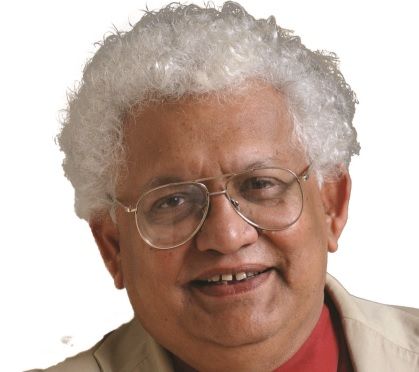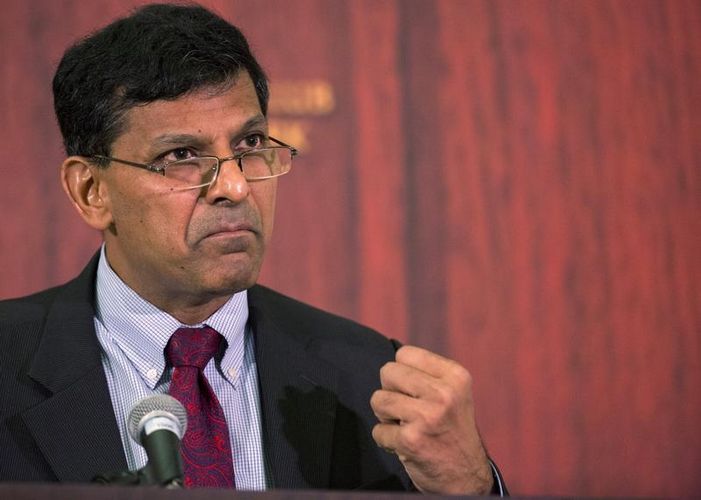This article was originally published by the Official Monetary and Financial Institutions Forum (OMFIF) in the The OMFIF Briefing.
India has been a low-inflation economy for most of the time since independence in 1947. Unlike states in Latin America or Africa, it never experienced hyperinflation. Even double-digit inflation was rare. Then, in 2009-14, the tenure of the Manmohan Singh government, inflation went out of control, exceeding real GDP growth for 20 successive quarters. Prices, especially of daily purchases such as fresh vegetables and fruit, were growing at double-digit rates.
This is a live issue. Onion prices have brought down Indian governments in India as voters vent anger about their most prized item of daily consumption. This helps explain why India has slowly begun to embrace the idea of inflation-targeting and an independent central bank – and why Raghuram Rajan, governor of the Reserve Bank, finds himself at the centre of a debate over his powers.
Tension is in the air. Hitherto the Reserve Bank has been subordinate to the finance ministry which regulates appointments of the governor and top staff. The ministry tends to be bossy. But it has in Rajan not one of its own but a genuine outsider. It would be tempting for the government to demonstrate who is boss. Yet Rajan is the first RBI governor who can walk away to a higher profile job. The loss would be India’s.
Governors normally come from within the bureaucracy, most often the finance ministry. Rajan is an exception. He has had a brilliant academic career at the University of Chicago Booth Business School, taking in the job of chief economist of the International Monetary Fund along the way. Rajan took over at the RBI in September 2013, just a few months after his 50th birthday. He has established an image as an innovative central banker and a doughty inflation fighter.
The Bharatiya Janata Party government that took office in May 2014 has promised rapid growth and finds the governor’s stern interest rate stance somewhat restrictive. On the wilder shores of the party, there was talk of replacing Rajan as soon as Narendra Modi’s government moved in, but wiser counsels prevailed.
Rajan has been careful to cut interest rates in three cautious stages from 8% to 7.25% this year, each step contingent on his belief that inflation really is on the way down. The annual rise in wholesale prices is now in low single digits and the retail price index is growing at less than 5%.
Against this background, the finance ministry and the RBI have also been engaged in enacting legislation to put inflation-targeting on a sound basis and constitute a monetary policy committee. Its size – five or seven members – and composition – how many appointees from the ministry, the RBI and outside – have attracted much speculation.
On 23 July the government published a draft code from an external commission, which suggested four government appointees, the governor and two other RBI representatives. This was widely interpreted as an attack on the governor’s authority. The government has since played down the proposal. In truth, nothing has been decided.
Meanwhile GDP growth, while a robust 7%-plus, has not been as dramatically high as Modi’s campaign seemed to promise. India is the G20’s fastest growing economy, ahead of China, but the government wants more. The policy logjam of the previous administration has tied up a lot of money in stalled infrastructure projects. Corporate debt is reflected in non-performing assets of the nationalised banks.
A short cut would be a drastic interest rate cut. A more patient and structurally sounder route would be to unravel the knot of stalled projects and begin to deliver output and revenues. Business loves low interest rates. So do finance ministers. But inflation is now a core problem for the Indian economy. Rajan has openly declared this is his priority to fight.
Rating agency Moody’s has stated that, if the RBI’s autonomy was seen to be in danger, it would amend its judgment on the Indian economy. In the wrangling over Rajan’s remit, a great deal is at stake.
Prof. Lord (Meghnad) Desai is emeritus professor at the London School of Economics and Political Science and chairman of the OMFIF Advisory Board.

